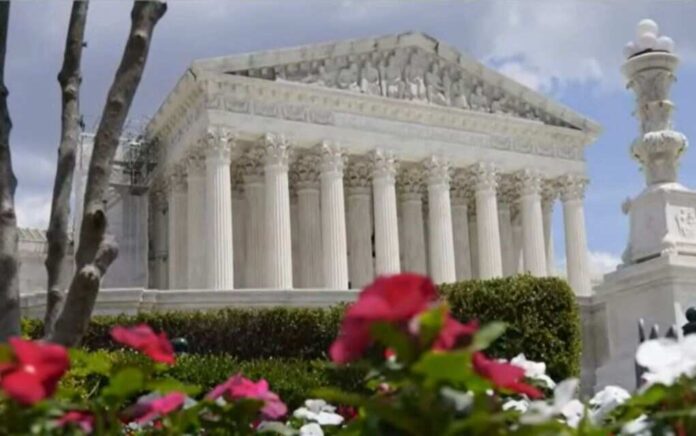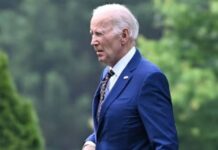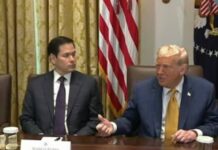
The Supreme Court has handled a ton of major cases lately. But none as big as this one.
And the U.S. Supreme Court has handed down their biggest ruling in decades.
On Tuesday, the Supreme Court made clear that state judges can bypass state legislators when it comes to implementing federal election laws.
The majority judgment of the court was written by Chief Justice John Roberts, but five other Justice agreed with him that the Elections Clause of Article 1 “does not insulate state legislatures from the ordinary exercise of state judicial review.”
The majority included Justices Sonia Sotomayor, Elena Kagan, Brett Kavanaugh, Amy Coney Barrett, and Ketanji Brown Jackson. Justices Neil Gorsuch and Samuel Alito agreed with Justice Clarence Thomas’s dissenting opinion.
When legislatures exercise the authority granted to them by the Elections Clause, “state courts retain the authority to apply state constitutional restraints,” Roberts noted.
“But federal courts must not abandon their own duty to exercise judicial review. In interpreting state law in this area, state courts may not so exceed the bounds of ordinary judicial review as to unconstitutionally intrude upon the role specifically reserved to state legislatures by Article I, Section 4, of the Federal Constitution,” the majority opinion asserts.
Moore v. Harper involved a constitutional argument over whether or not a state court has the authority to oversee federal elections, specifically redistricting plans that were designed to favor one party over another. Some state legislators were lobbying for a positive reading of the “independent state legislature” (ISL) doctrine, arguing that their states should have nearly complete autonomy in setting election rules for the president and Congress.
North Carolina’s state court had previously rejected the GOP’s congressional plan, which had been submitted in November 2021, prompting the matter to reach the Supreme Court.
The Democratic-majority state supreme court ruled that the maps were illegal because they gave the Republican-controlled legislature an unfair edge in the state’s 14 congressional districts.
The final court-drawn maps were utilized in the state’s midterm elections, giving each major party seven seats. The Republican-controlled state legislature claimed that the General Assembly’s right under the elections clause was being infringed upon by the adoption of the court-drawn maps.
With virtually no state judicial review, the Republican-controlled legislature requested the Supreme Court to use the ISL theory, which holds that state legislatures have “plenary” or unrestricted jurisdiction to decide how elections are conducted.
In Article 1, it is stated that “the Times, Places, and Manner of holding Elections for Senators and Representatives, shall be prescribed in each State by the Legislature thereof.”
Conservative supporters have said that a ruling in favor of the North Carolina Supreme Court might have far-reaching consequences for election security across the country.
However, many on the opposing side of the political spectrum thought the autonomous state legislature concept was too wide, claiming that the outcome might have a chilling effect on democracy and pave the way for further gerrymandering in an already polarized political climate.
University of Iowa College of Law professor Derek Mueller noted that the opinion issued on Tuesday raises “unanswered questions” concerning the jurisdiction of state courts in electoral disputes.
“The door is not closed on these challenges, and open questions remain in the 2024 election and beyond.”
Derek Mueller noted that the Supreme Court didn’t make it clear what actions of the judiciary would be considered overreach into the powers expressed for the state legislatures.
It stands to reason that the state legislatures can’t just unilaterally install anyone they want into office by an abuse of their power, but now the goal posts are even more unclear than before.
Expect this issue to be brought before the U.S. Supreme Court again as further battles between state judges and state legislatures hash out in future elections.
Stay tuned to the Federalist Wire.



















